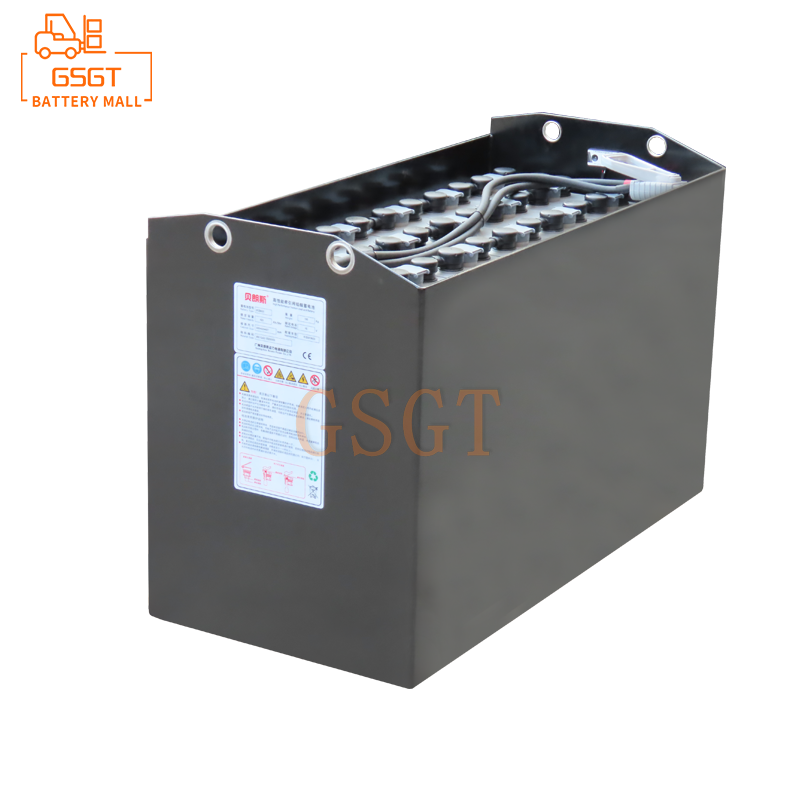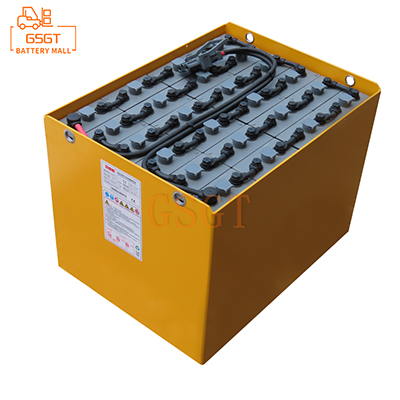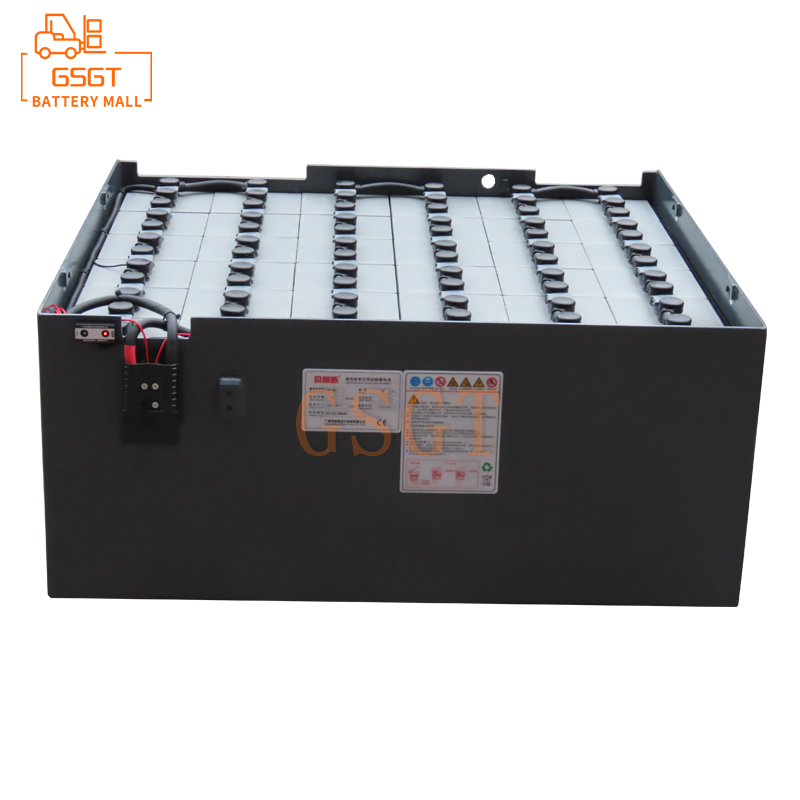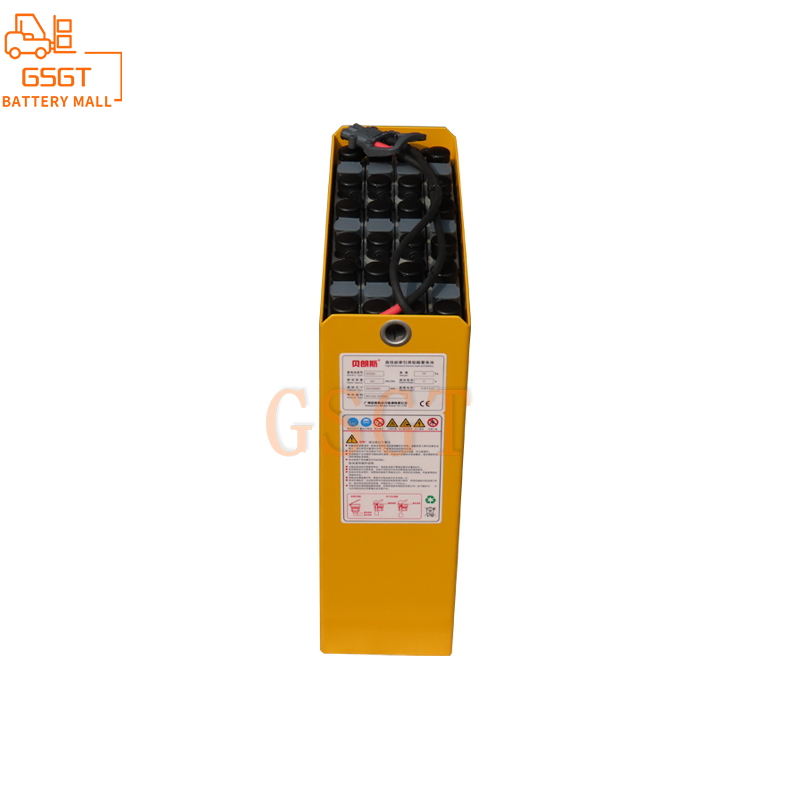Time:2025-04-18 10:42:55
Browse:779
In the modern logistics and warehousing industry, forklifts, as indispensable handling equipment, the choice of their power sources is of vital importance. Forklift lead-acid batteries, with a series of unique core advantages, occupy an important position in the forklift power field and play a key role in numerous application scenarios.
1. Core Advantages of Lead-Acid Batteries for Forklifts
(1) High cost performance
The production technology of lead-acid batteries is mature, with abundant raw materials and relatively low prices. Lead is one of the main raw materials for lead-acid batteries and has a considerable reserve in nature, which enables the production cost of lead-acid batteries to be effectively controlled. Compared with other types of forklift power sources, such as lithium batteries, the initial purchase cost of lead-acid batteries is much lower. For small and medium-sized enterprises with limited budgets, choosing lead-acid battery forklifts can not only meet the production operation requirements but also significantly reduce the financial pressure on equipment procurement. In addition, the repair and maintenance costs of lead-acid batteries are also relatively low. Its structure is relatively simple. Once a malfunction occurs, technicians can conduct detection and repair relatively quickly, and the price of the parts required for repair is not high either, further reducing the operating costs of the enterprise.
(2) Excellent high-current discharge performance
During the daily operation of forklifts, they often need to start, accelerate and brake frequently, which requires the power source to be able to provide a powerful current instantly. Lead-acid batteries have excellent high-current discharge capabilities and can meet the high-intensity working requirements of forklifts. When starting a forklift, lead-acid batteries can release a large amount of electrical energy in a short time, providing sufficient power for the forklift's motor, enabling the forklift to start quickly and reach its normal operating speed. When handling and loading/unloading goods, whether it is lifting heavy objects or moving quickly, lead-acid batteries can stably output a large current, ensuring the normal operation of the forklift's hydraulic system and drive system, and guaranteeing the efficient progress of the operation. This excellent high-current discharge performance is one of the important reasons why lead-acid batteries can be widely used in the field of forklift power.
(3) Adapt to various environmental conditions
Lead-acid batteries have strong environmental adaptability and can operate normally under different temperature and humidity conditions. In low-temperature environments, although its performance may decline, through appropriate insulation measures, such as installing insulation covers on the battery, the forklift can still operate normally to a certain extent. In high-temperature environments, lead-acid batteries can also maintain stable performance as long as proper ventilation and heat dissipation measures are taken. In addition, lead-acid batteries also have a certain tolerance to factors such as dust and vibration in the working environment. In some complex storage environments with a lot of dust or uneven ground and significant vibration, lead-acid battery forklifts can still operate reliably and will not easily malfunction due to these harsh environmental conditions, ensuring the continuity of logistics operations.
(4) The technology is mature and the supporting facilities are complete
The development history of lead-acid batteries is long, and their production and manufacturing technology has become very mature. From the manufacturing of plates, the preparation of electrolyte to the assembly of batteries, each link has a complete process and strict quality control standards. This makes the quality and performance of lead-acid batteries relatively stable and the consistency of the products relatively high. Meanwhile, the supporting facilities for lead-acid batteries are also very complete. There are a large number of professional maintenance service institutions and technicians in the market, who can provide comprehensive maintenance and care services for lead-acid batteries. Moreover, the charging equipment for lead-acid batteries is also quite common and diverse. Whether it is the traditional charger or the new intelligent charging system, they can all meet the needs of different users. This well-developed technology and supporting system provide a solid guarantee for the wide application of lead-acid batteries in the forklift field.
2. Application Scenarios of Lead-Acid Batteries in Forklifts
(1) General Warehousing and Logistics
In an ordinary warehousing and logistics center, the storage and handling of goods are the main operational contents. Forklifts need to frequently shuttle between shelves to store, retrieve and transport goods. Lead-acid battery forklifts, with their high cost performance and excellent high-current discharge performance, can well adapt to this working environment. The operation hours of ordinary warehousing and logistics centers are relatively fixed, usually working for about 8 to 10 hours a day. The endurance capacity of lead-acid batteries can fully meet the daily operation requirements. Moreover, its adaptability to various environmental conditions enables it to operate stably in indoor warehouse environments. Whether in normal temperature or slightly humid conditions, it will not affect its normal work. In addition, due to the varying scales of ordinary warehousing and logistics centers, the requirements for capital investment also differ. The relatively low initial purchase and maintenance costs of lead-acid battery forklifts make them the first choice for many small and medium-sized warehousing and logistics enterprises.
(2) Cold Chain Logistics
The cold chain logistics industry has higher requirements for the performance and environmental adaptability of forklifts. In low-temperature cold storage, the temperature is usually maintained at -18 ℃ or even lower. Such an extremely low-temperature environment poses a huge challenge to the power source of forklifts. Although lead-acid batteries may experience a decline in performance at low temperatures, they can still play a significant role in cold chain logistics by taking effective insulation measures and using specialized low-temperature electrolytes. In cold chain logistics, the turnover speed of goods is fast, and forklifts need to operate continuously for long periods. The excellent high-current discharge performance of lead-acid batteries can ensure that forklifts maintain stable power output during frequent loading, unloading and handling processes. Moreover, the high cost performance of lead-acid batteries also meets the demands of cold chain logistics enterprises in terms of equipment procurement and operation cost control. Compared with other more expensive power solutions, lead-acid battery forklifts can reduce the overall operating costs of enterprises while ensuring operational efficiency.
(3) Port Terminals
Port terminals are important hubs for goods transportation, where forklifts undertake heavy tasks of loading, unloading and handling goods. The working environment of the port is complex. Not only is there a large amount of dust and sea wind erosion, but the ground condition is also rather harsh, with many potholes and unevenness. Lead-acid battery forklifts, with their strong environmental adaptability, can operate stably in such harsh conditions. In port operations, forklifts need to handle large containers and heavy goods, which have extremely high requirements for power. The outstanding high-current discharge performance of lead-acid batteries can meet the power requirements of forklifts under heavy loads, ensuring that goods can be loaded, unloaded and moved quickly and safely. Meanwhile, the mature technology and complete supporting facilities of lead-acid batteries enable that in places like ports where equipment reliability is highly demanded, once a fault occurs, it can be promptly repaired and handled, reducing equipment downtime and enhancing the operational efficiency of ports.
(4) Manufacturing Factories
Inside manufacturing plants, forklifts are mainly used for transporting raw materials, handling semi-finished and finished products, and facilitating the flow of materials between production lines. The working environments in factories vary. Some workshops have relatively high temperatures, while others have certain vibrations and dust. Lead-acid battery forklifts can adapt to these diverse environmental conditions and provide reliable support for the production logistics of factories. In some large factories such as automobile manufacturing and mechanical processing, forklifts need to frequently handle and load heavy goods. The high current discharge performance of lead-acid batteries can ensure the power supply of forklifts under high-intensity operations. Moreover, when factories choose power sources for forklifts, they also take cost factors into account. The relatively low purchase and maintenance costs of lead-acid battery forklifts make them one of the more ideal choices for manufacturing factories. In addition, the supporting charging facilities for lead-acid batteries can be compatible with the existing power system of the factory, facilitating charging management and energy supply.
3. Summary
Forklift lead-acid batteries, with their core advantages such as high cost performance, excellent high-current discharge performance, adaptability to various environmental conditions, and mature technology with complete supporting facilities, play an irreplaceable role in numerous application scenarios including ordinary warehousing and logistics, cold chain logistics, ports and docks, and manufacturing factories. Although with the continuous development of new energy technologies, new power sources such as lithium batteries have gradually emerged, the position of lead-acid batteries in the forklift power field remains stable. In the future, with the further improvement and innovation of lead-acid battery technology, such as enhancing energy density, extending service life, and reducing self-discharge rate, it will continue to play a significant role in the forklift industry and other related fields, providing reliable power support for the development of logistics and manufacturing. At the same time, when enterprises choose the power source for forklifts, they should, based on their actual needs and working environment, comprehensively consider various factors and rationally select lead-acid battery forklifts to achieve the best economic benefits and operational efficiency.

$2450

$3405

$4045

$1270

MESSAGE
Professional And Efficient
Security
Affordable Price
Professional Services